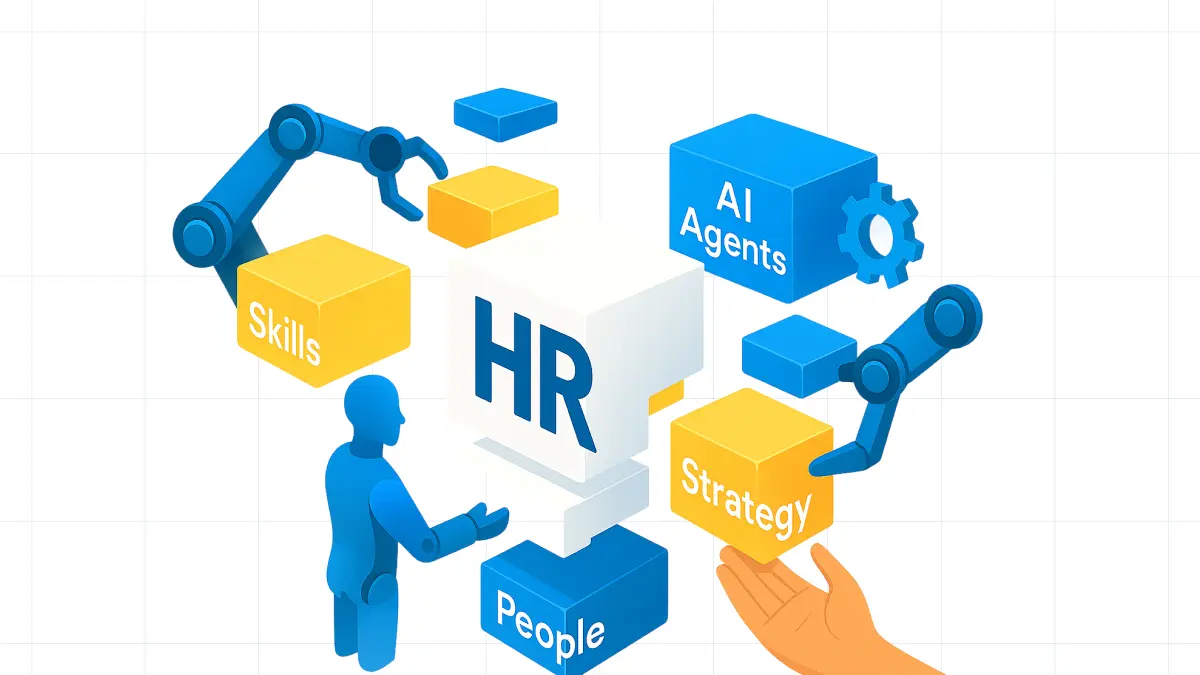As generative AI takes center stage in reshaping industries, its adoption in HR paints a more complex picture. Despite its potential to revolutionize workflows and drive strategic impact, not all HR teams are on board.
This report, “HR Sentiments on Technology in the AI Era,” by FlexOS uncovers the key sentiments, challenges, and opportunities shaping HR's relationship with technology in the AI era. From adoption hurdles to the evolving skills HR professionals will need, we dive into the data to understand what’s driving—or slowing—progress.
Are HR leaders ready to fully embrace the AI era, or are critical barriers holding them back? Let’s explore.
1. Four Out of Ten HRs Still Avoiding Generative AI
Generative AI is the hottest trend among emerging technologies, making significant inroads into HR departments. However, even two years after the boom of ChatGPT, and despite most HR leaders believing AI is the future according to a 2024 Gartner survey, we found that 4 out of 10 HRs are still not using generative AI, despite it being the most-used AI tool cited by respondents.
Relevantly, only 40.5% of HR leaders believe that AI can enable expanded HR capabilities, and just 36% say it helps them save time on routine tasks so they can focus on strategic work.
This gap sparks an important discussion: what’s holding HR teams back, given this technology is becoming increasingly mainstream? Is it a lack of trust in AI, uncertainty about its fit within HR processes, or the challenges of integrating new technology into existing workflows?
2. Is AI Living Up to the Hype? 2 in 5 HR Leaders Aren’t Convinced
Notably, 38% of respondents perceive AI as overhyped, adding a layer of skepticism to the broader enthusiasm for the technology. This sentiment likely stems from inflated promises or a gap between expectations and real-world outcomes.
Many HR leaders may feel pressured to adopt AI because it’s seen as "the next big thing." Yet, many have yet to see tangible results or even identify good use cases for themselves, their teams, and organizations.
3. AI Adaptation Tops HR’s Growing List of Challenges
When asked about the biggest challenges they face in adapting to current changes, 35% of HR respondents identified adapting to AI and automation as the most significant hurdle.
Data privacy and compliance were closely behind, cited by 34%. This highlights the ongoing struggle to safeguard sensitive employee information and protect company data in an increasingly AI-driven environment.
The impact of AI on jobs and employment, cited by 31%, ranked as the third most pressing challenge, reflecting widespread concerns about how emerging technologies are reshaping roles, responsibilities, and the structure of the workforce.
Many HR leaders see preparing their teams for the future with AI as a pressing concern that needs to be addressed. With 36.5% of respondents identifying the AI skills gap as a key area to address, this sits alongside building resilience in organizational culture (27%) and navigating ethical AI use (25.5%).
However, people-centric priorities are also seen as equally important on the HR agenda, including employee mental health and well-being, which ranked second with 30% of respondents.
4. AI & EQ are The Top HR Skills for the Next Five Years
Despite lingering skepticism around AI, its significance in HR is becoming impossible to ignore.
AI and Automation Proficiency stands out as the most critical competency for HR professionals to master over the next five years, with 50.5% of respondents emphasizing its urgency.
Emotional Intelligence (EQ) comes in second at 31%, underlining the timeless importance of empathy and interpersonal understanding. In a tech-driven era, these human qualities remain indispensable—and it’s no surprise, as they are what uniquely set humans apart from machines.
Other top competencies that are considered critical for HR professionals in an AI-enhanced world include Digital Transformation (28%), Strategic Thinking (27%), and Change Management (25.5%).
Together, these skills highlight the dual challenge HR faces: mastering technological expertise while fostering human-centric leadership to navigate ongoing transformation effectively.
5. Is Leadership Doing Enough for the Future?
As organizations navigate rapid technological advancements, evolving work models, and shifting employee expectations, leadership plays a critical role in preparing for the future.
The findings reveal that 74.5% of HR professionals believe their companies are investing meaningfully in technology and strategies for the future of work, with 20% expressing the highest confidence level in these efforts.
However, 1 in 4 HR professionals feel their organizations are not investing enough. This highlights a notable divide, where some leadership teams may be falling short in adequately prioritizing or resourcing future-ready initiatives.
The findings underscore the importance of leadership in setting bold visions and ensuring sufficient and visible investments to drive progress.
Bridging this investment gap is key to empowering HR teams and meeting the demands of a rapidly changing workplace; then comes the practice of fostering change, as HR thought leader Lars Schmidt aptly noted in the conversation with us:
“It's about decentralizing and empowering. It's about creating some frameworks and some guidance but pushing that out to the business to run and manage. It has to be championed from the top down to be successful. Because then it's just another thing that we're trying to force upon employees.” – Lars Schmidt
6. Two-Thirds Can Align HRs with Broader Strategy, But Silos Still Hold Others Back
HR’s role in driving business success hinges on how well it integrates with broader company objectives. The findings reveal promising progress: nearly two-thirds of HR professionals see their initiatives as closely aligned with their company’s overall business strategy.
But the story doesn’t end there. A noticeable portion of organizations still struggle with disconnects. In these companies, HR operates in isolation and is unable to fully integrate with the larger business framework. This misalignment isn’t just a structural issue; it’s rooted in a set of recurring obstacles.
Communication barriers are a major factor, as poor inter-department collaboration and unclear objectives hinder progress. Budget constraints amplify the challenge, limiting investments in tools, talent, and programs that could bridge gaps. Meanwhile, technological resistance and limited expertise keep HR teams from leveraging AI and other modern solutions effectively.
Perhaps the most striking obstacle is perception. In some companies, HR’s role is still seen as administrative rather than strategic, which prevents its inclusion in key decision-making processes. This disconnect diminishes HR’s ability to influence the larger business agenda, and that’s what we need to break.
These findings highlight a pressing need for organizations to break down silos, redefine HR’s role, and invest in the resources needed to transform it into a central driver of business success.
About the Study
FlexOS conducted this survey in December 2024. It was conducted through the Pollfish panel of 200 HR managers and above in companies with 50+ employees in the USA across all age ranges, seniorities, and industries.
Respondents were invited using a double opt-in: they confirmed their interest, created a profile via a verification process, joined the respondent pool, and were invited to take the survey as they fit the targeting criteria.
About FlexOS
FlexOS is a media platform focused on delivering a happier future of work through research, expert opinion, and community groups. Besides the where and when (hybrid and remote work), our focus is on AI as the way to improve how we work. Global leaders from Apple, Gartner, L'Oreal, Amazon, Microsoft, and more trust FlexOS to stay ahead in the future of work.
Join over 42,000 tech-savvy, people-focused leaders by subscribing to our newsletters and be part of the discussions shaping what’s next in work.
























